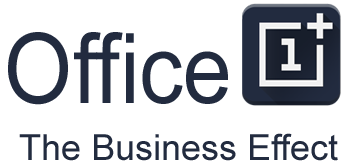As the field of staffing and recruiting has evolved, so too have new technologies. While these advancements will never replace our experience or insight, they are an integral part of how we do business now. Here are just a few ways in which technology impacts what is traditionally thought to be human-only work:
Technology continues to change the way that businesses operate – including those focused on staffing and recruitment! Although tech alone can’t take over all aspects of search consulting, there’s no denying its importance and impact across industries like this one. So what might you say about some specific ways in which technology impacts staffing?
Technology touches every sector of every industry. The recruitment and staffing industry is no exception to this rule, as change has become an unavoidable norm in business today. Meaning we must adopt new strategies to stay competitive and relevant to future job seekers who place a high value on your take on social media.
The use of video interviews has helped to increase the number of applicants. With Covid-19, the use of video interviews accelerated. As a result, our customers report that their conversion rates have increased by over 200% compared to live phone calls with an agent. The best part is that the Covid-19 Video Interviews are automatically recorded so the candidate, recruiter, and managers can refer back to them later when questions arise. It’s no secret that finding a job can be tricky. So a new piece of technology has been introduced to help recruiters assess prospective candidates, and it is changing the way they do business forever. Recruitment video allows both recruiter and applicant an opportunity for enhanced dialogue about what they have to offer each other in their professional relationships.
This innovative recruitment tool gives businesses access to interviews you’ve never seen before: from your perspective! In addition, it offers a chance for more than just superficial conversation with potential employees by providing viewers insight into how applicants would fit seamlessly into our culture here at HQ-Ivy League Recruiting Firm (www.HQdocs).
The introduction of recruitment videos presents employers with yet another opportunity to find qualified candidates who fit well into their company culture while still being afforded the confidentiality expected from traditional methods such as phone screenings or resumes.
Video interviews have made it easier for both applicants and recruiters to conduct job interviews in a more convenient location.
Technology is also being used for hiring managers. For example, some HR departments have created their own internal applicant tracking system, which allows them to track all stages of the recruiting process from start to finish.
Staffing and recruiting industry expert and CEO of AkkenCloud, Giridhar Akkineni, says, “a company cannot find the best talent without an applicant tracking system (ATS). These systems are so important that they keep companies competitive in today’s job market by managing their hiring efforts and finding top performers for any open positions within both large corporations, as well small staffing firms looking to fill openings.”
When a company needs to find the perfect candidate, they usually turn their attention to an ATS. One reason is that it makes organizing and searching through documents such as resumes or cover letters easy, with many systems having components that allow job seekers to apply right from within the ATS on their mobile devices like smartphones! But not all ATS are alike – different architecture can mean particular features for each one of them, so be sure you know what your next hiring partner’s capabilities will be before making any commitments.

As for job seekers, they are looking for employment opportunities through mobile devices like tablets and smartphones more than ever; this has made it easier for companies to post jobs on different platforms. Currently, there are more than 13,000 jobs for mobile app developers on the job board company Indeed.com as compared with just 600 in 2010.
According to Gartner’s report on mobile apps, the global mobile app market alone will be worth $45 billion by the end of 2017. Additionally, some statistics say that 90 percent of searches are done through smartphones and tablets. This means companies looking for candidates can more easily access talent through their own mobile devices.
Remote work is affecting the staffing and recruiting industry just like it is with almost all industries. Recruiters can now handle administrative tasks remotely, so they don’t have as big a need for a physical office anymore. In addition, cloud platforms are becoming more robust, making it possible for companies to manage their staffing agency operations remotely. Most predict this trend will continue not at the rate Covid-19, but remote work is here to stay.
Working from home reduces a company’s overhead by allowing them to hire more skilled workers who they otherwise would not be able to accommodate. This is thanks primarily because of the flexibility that remote employees offer employers, such as people with disabilities. However, this also means companies can’t see much of their employee’s daily life, and staff must be self-starters if they want success. It will take some time for these kinds of jobs (i.e., customer service) to become fully automated so that employers won’t need someone on-site at all times.
Working from home has many benefits which save businesses money, including hiring talent outside what may typically have been available without having had physical access to those individuals’ homes/
The tech boom has also affected how businesses advertise their available positions. With more and more people using tablets and smartphones, companies are now using social media platforms like Facebook, Twitter, and Instagram. As a result, job seekers are more likely to seek employment opportunities while they’re out surfing the Internet on their handheld devices.
In conclusion, technology has redefined the staffing and recruiting industry in multiple ways by affecting how businesses advertise their available positions and some company’s preference for hiring remote employees.
Another essential thing to remember is that all of these changes are just part of a more significant cultural shift towards technology in general. Remember, it wasn’t THAT long ago we used to only have paper applications, and job listings were all in the help wanted section of the newspaper!

